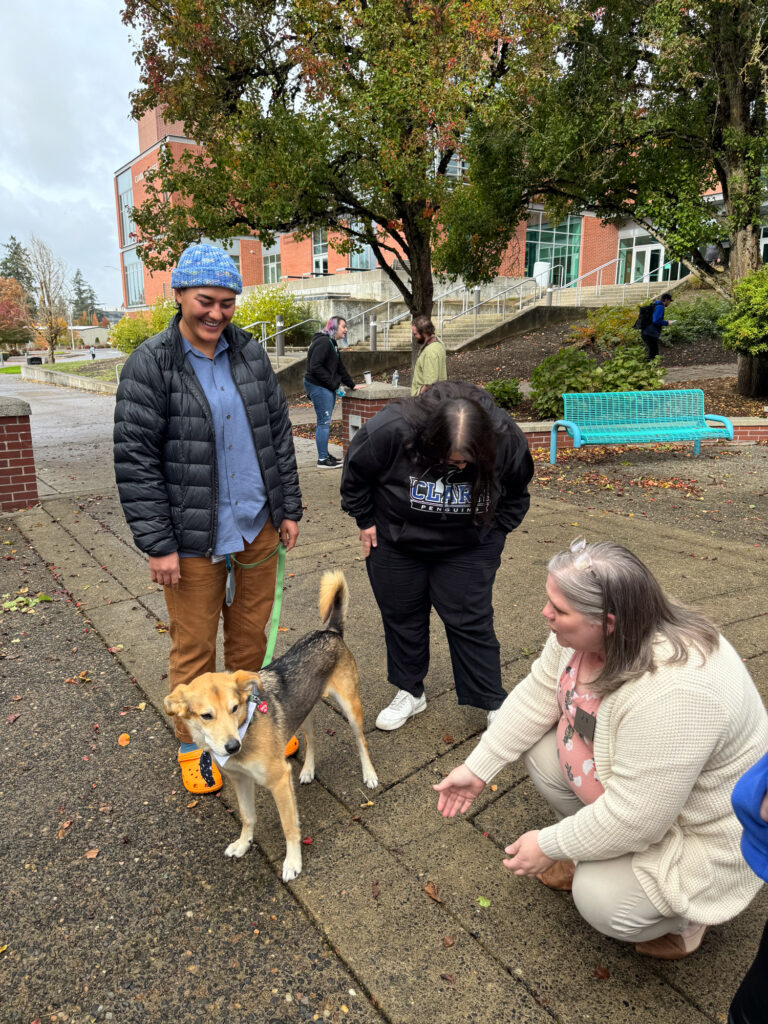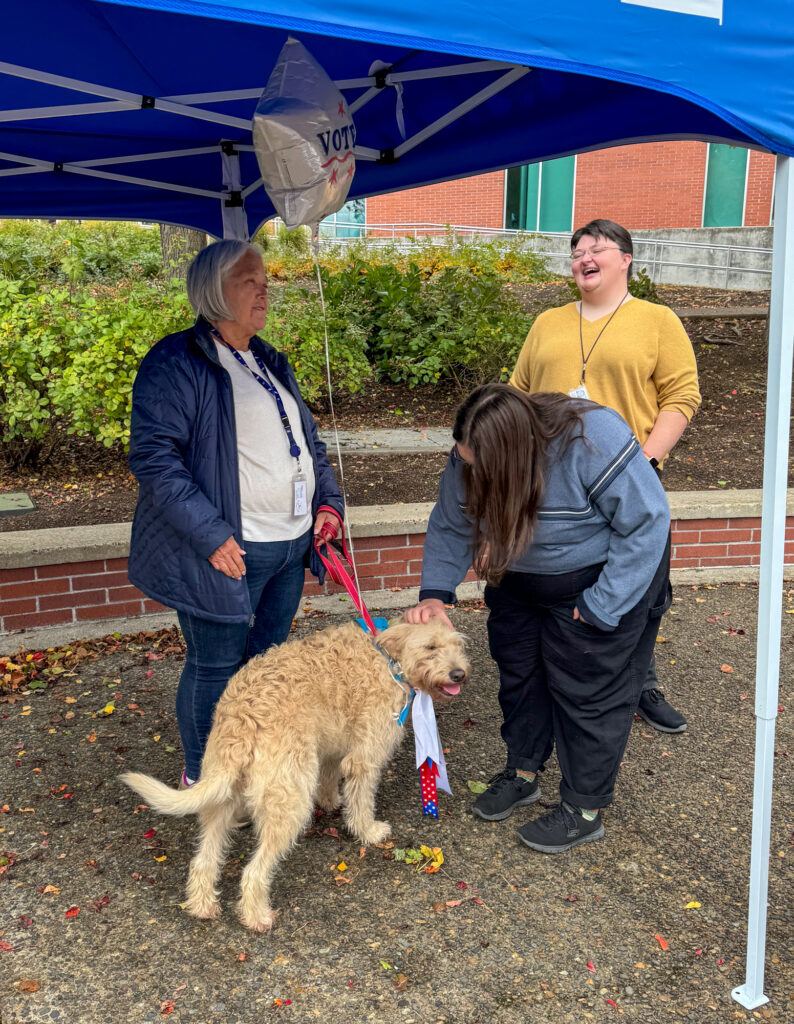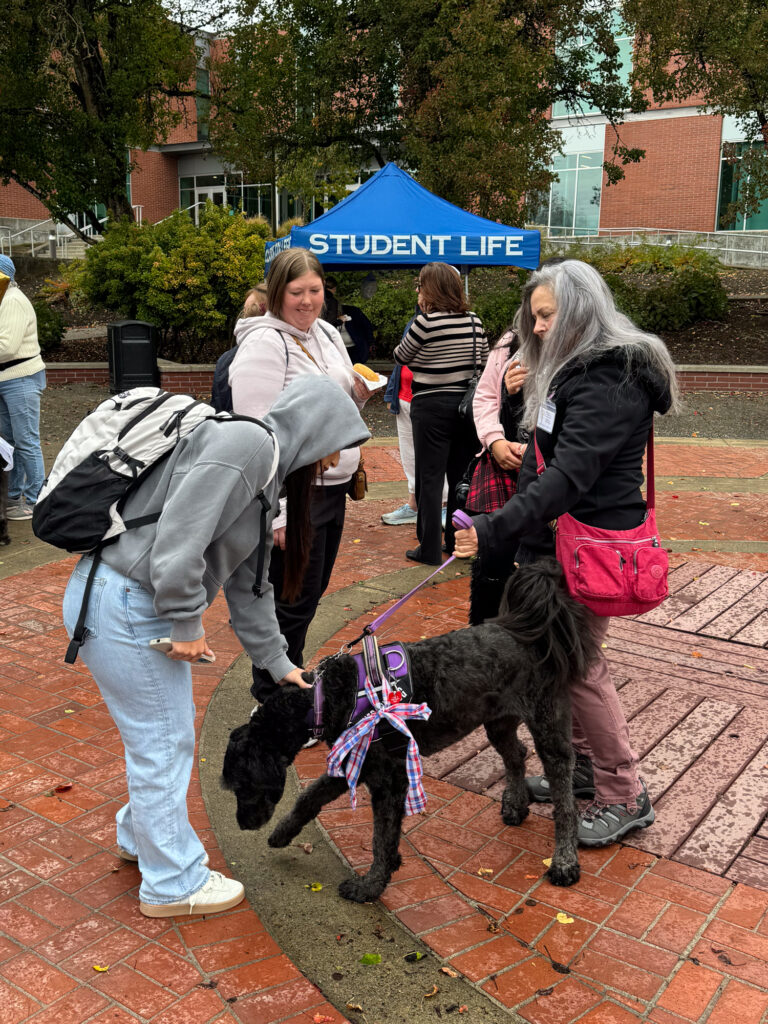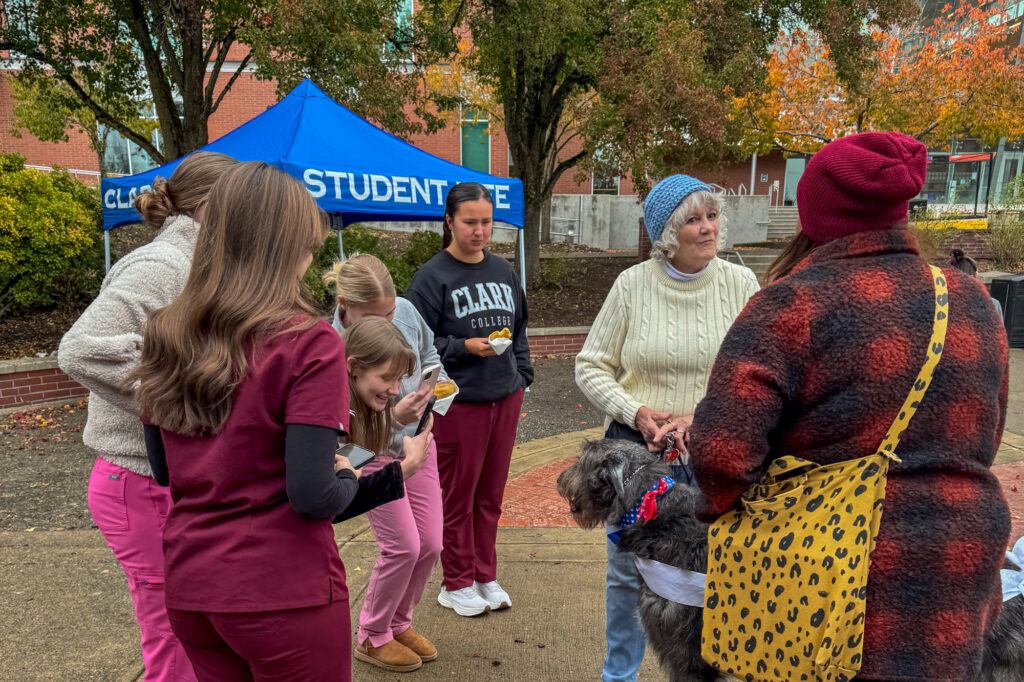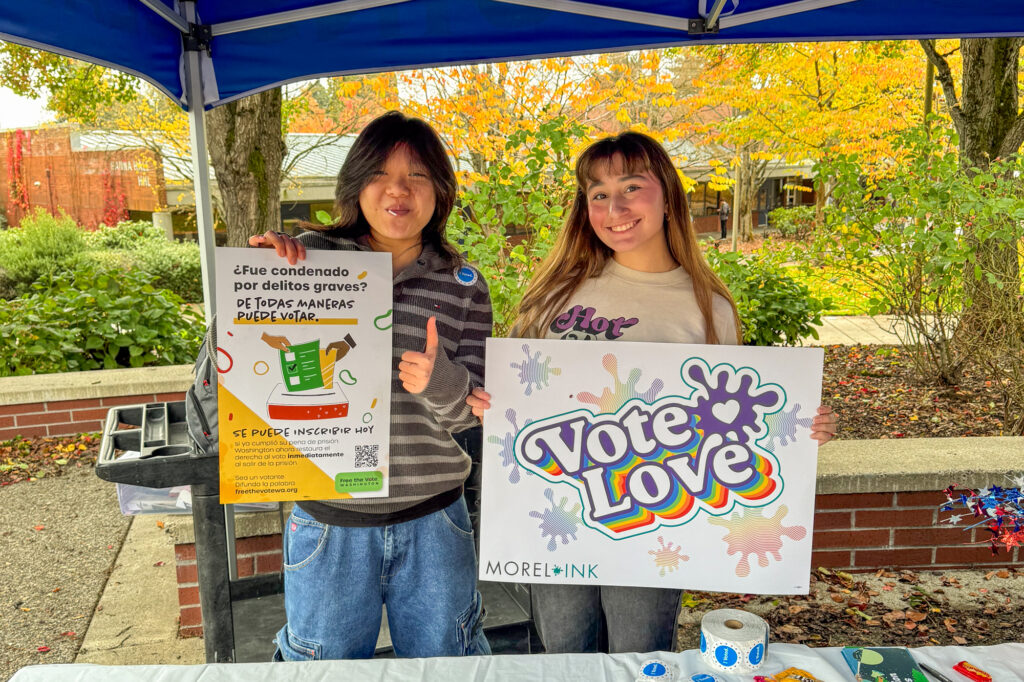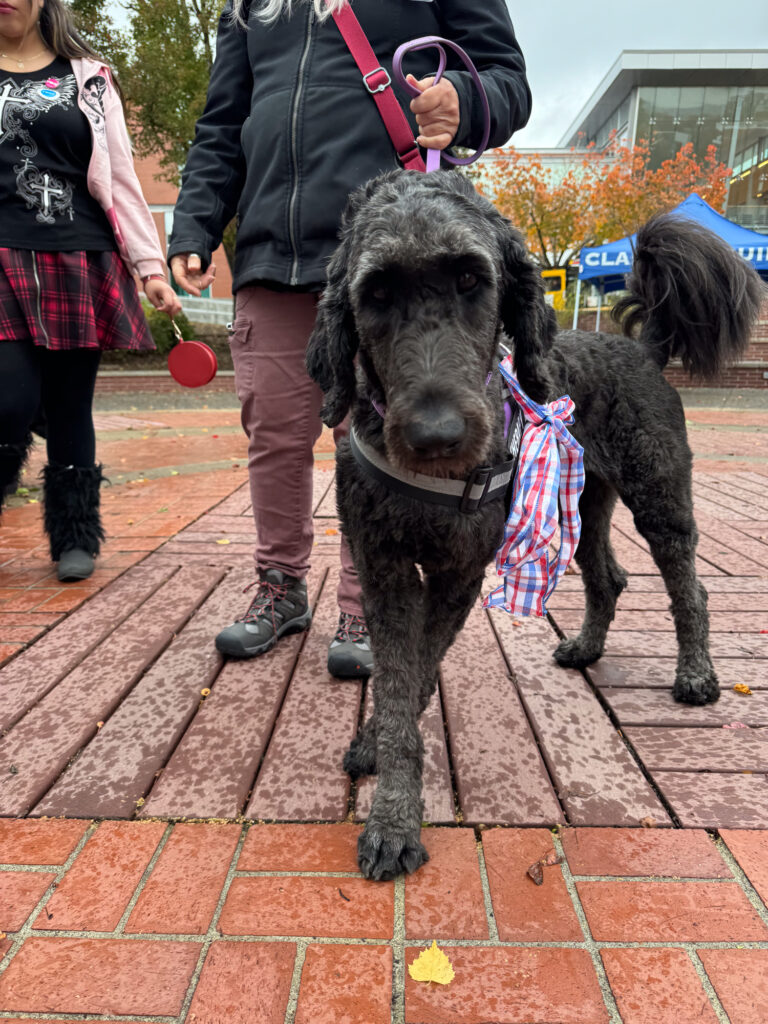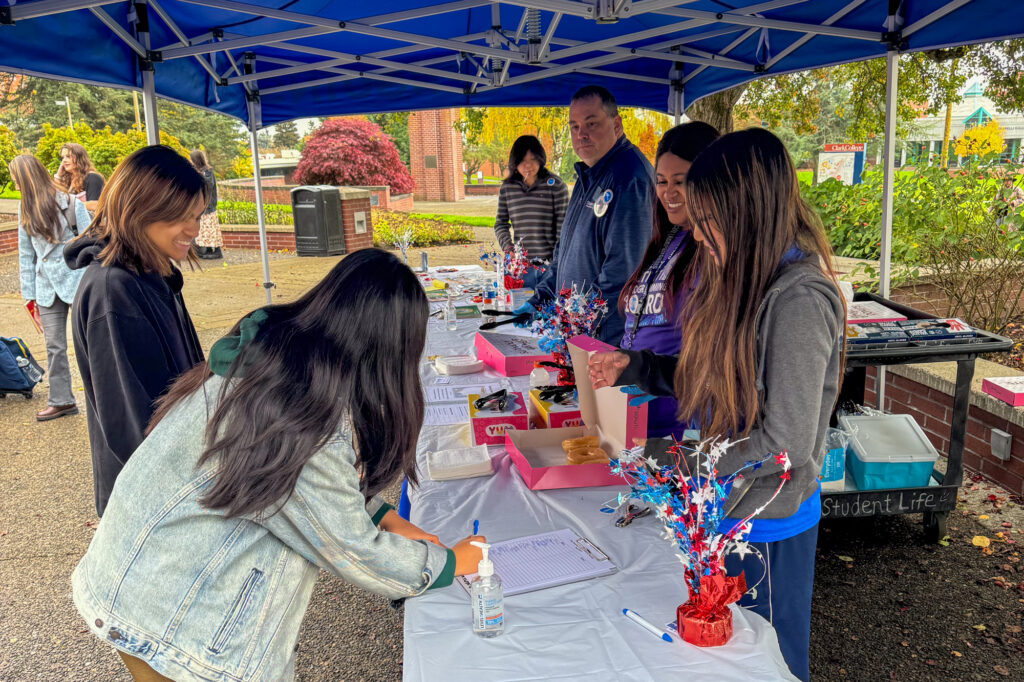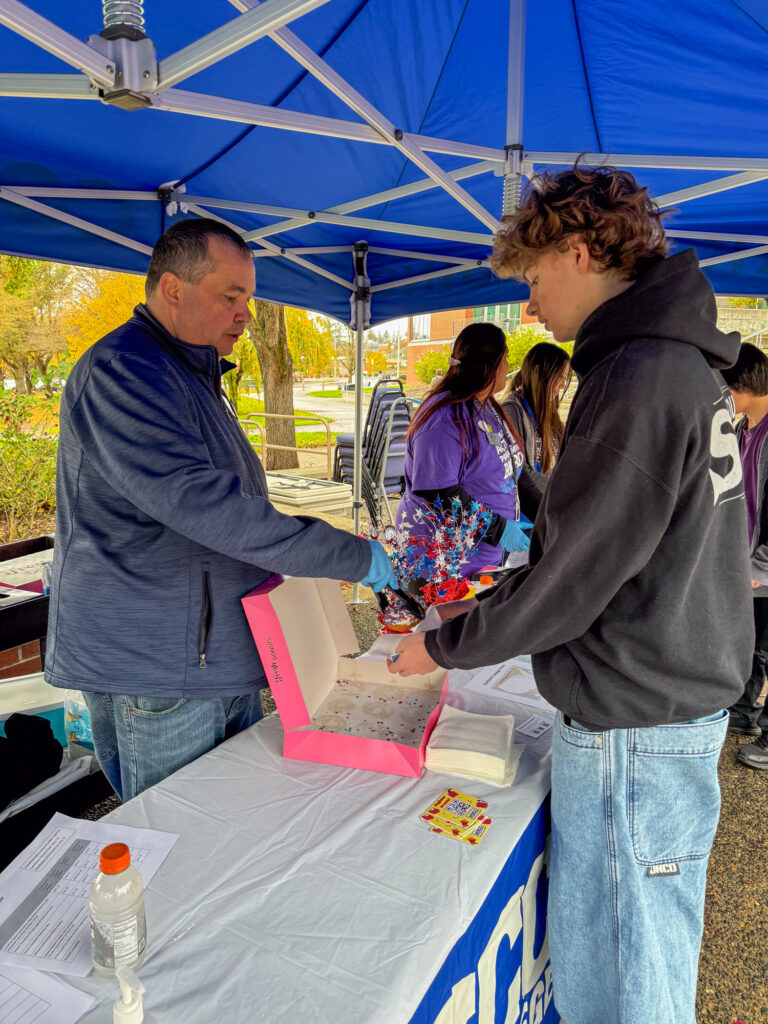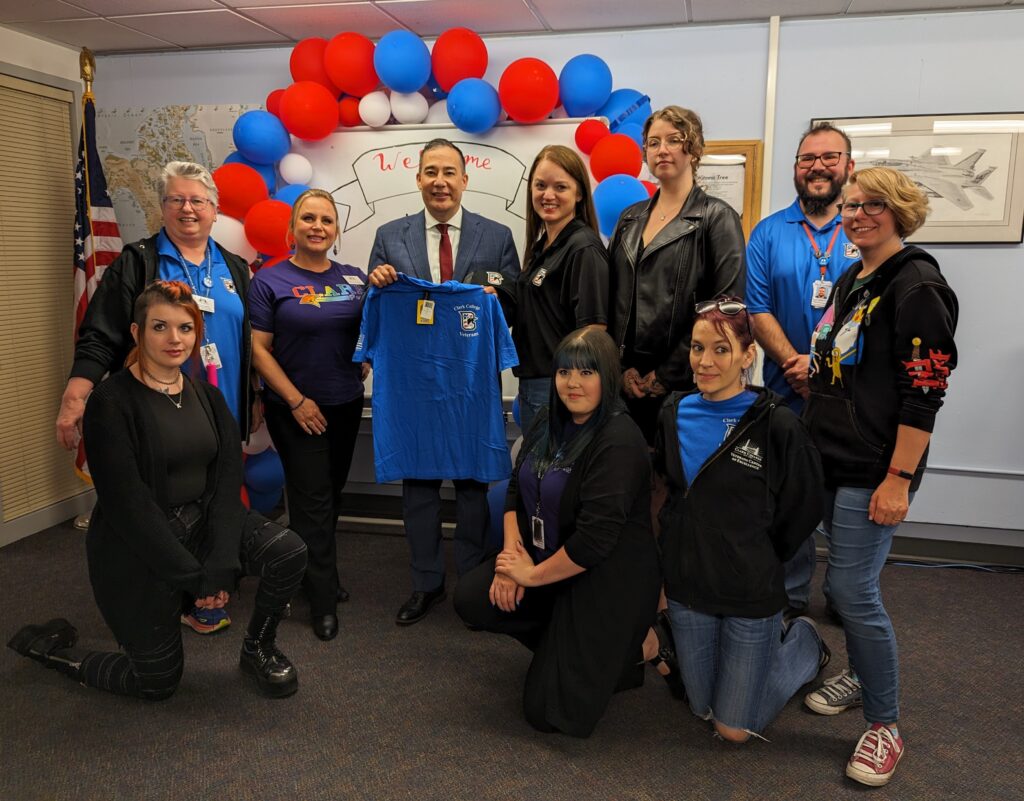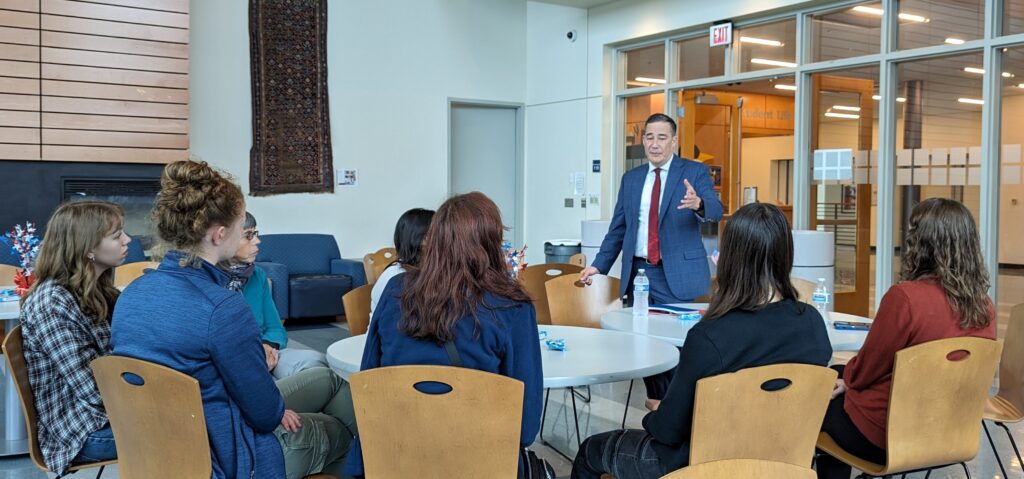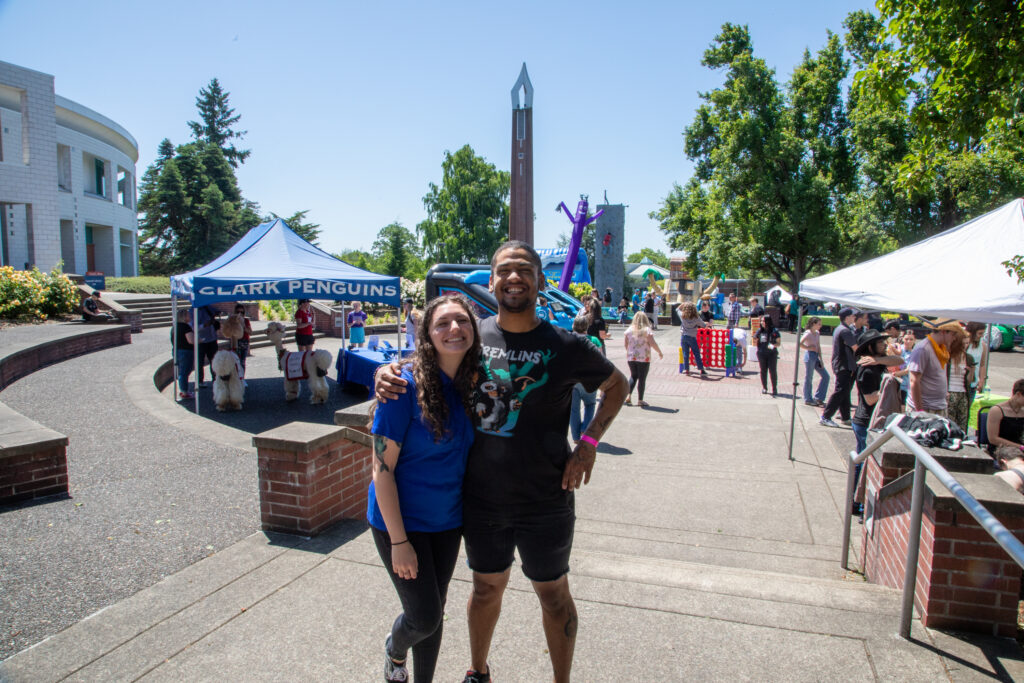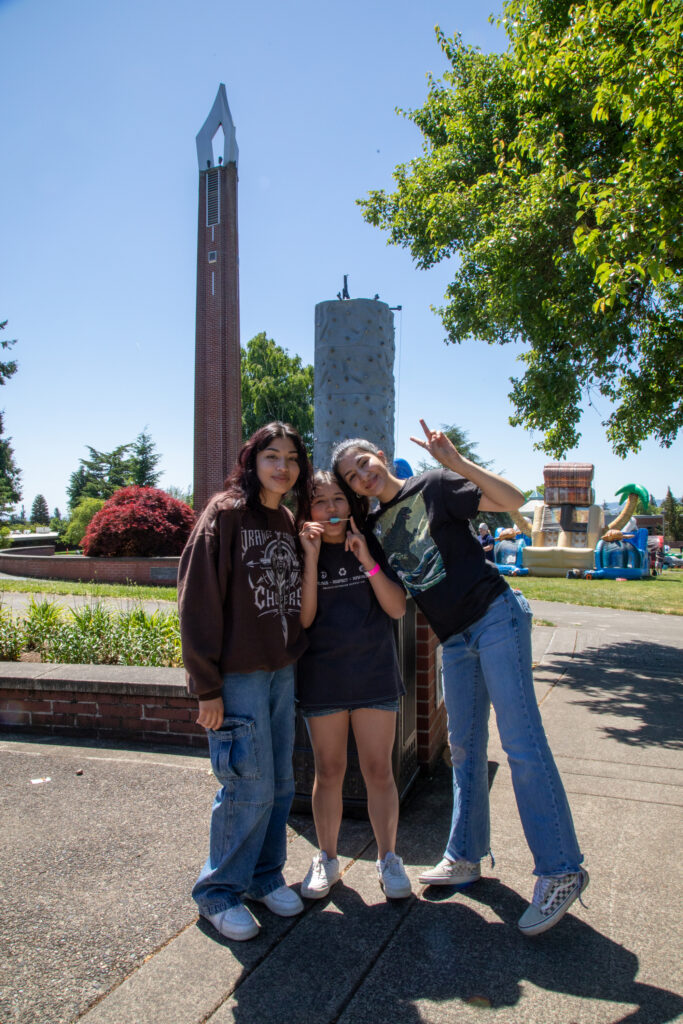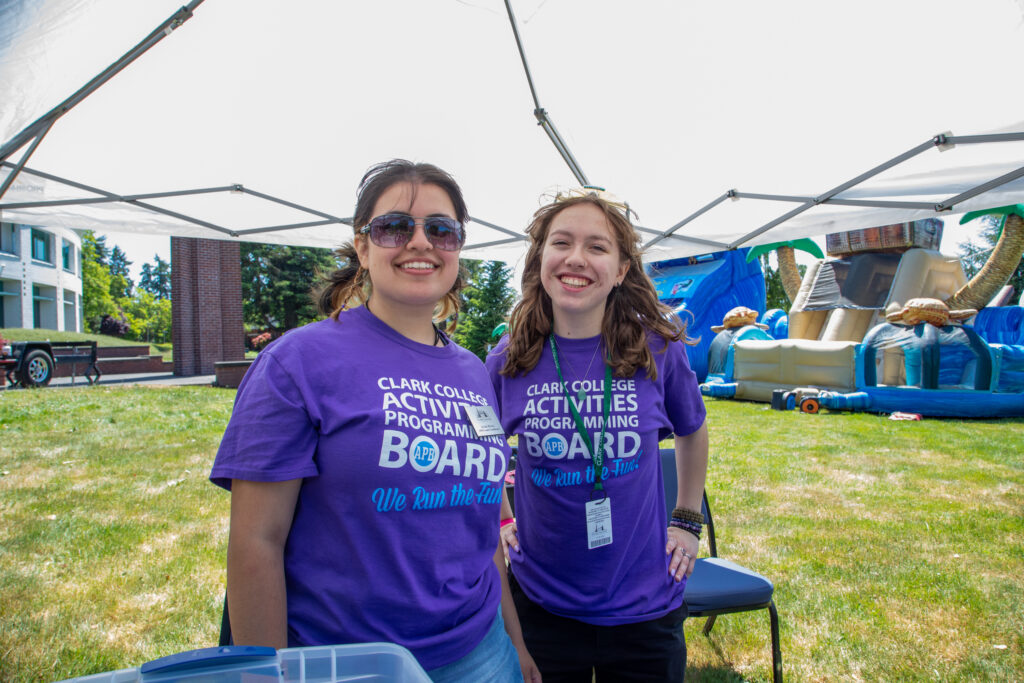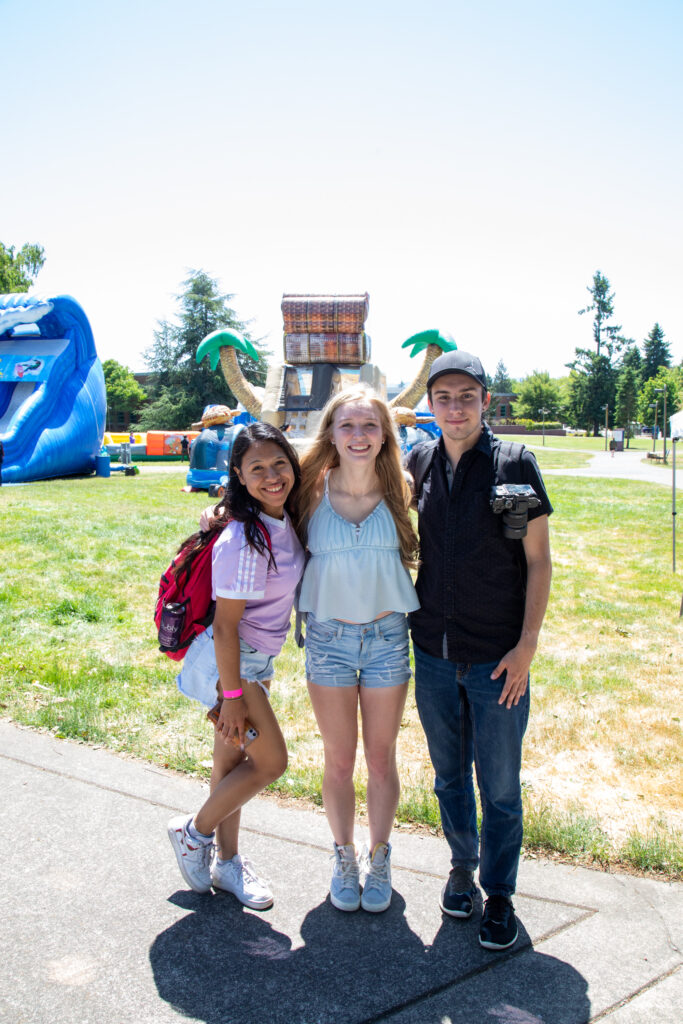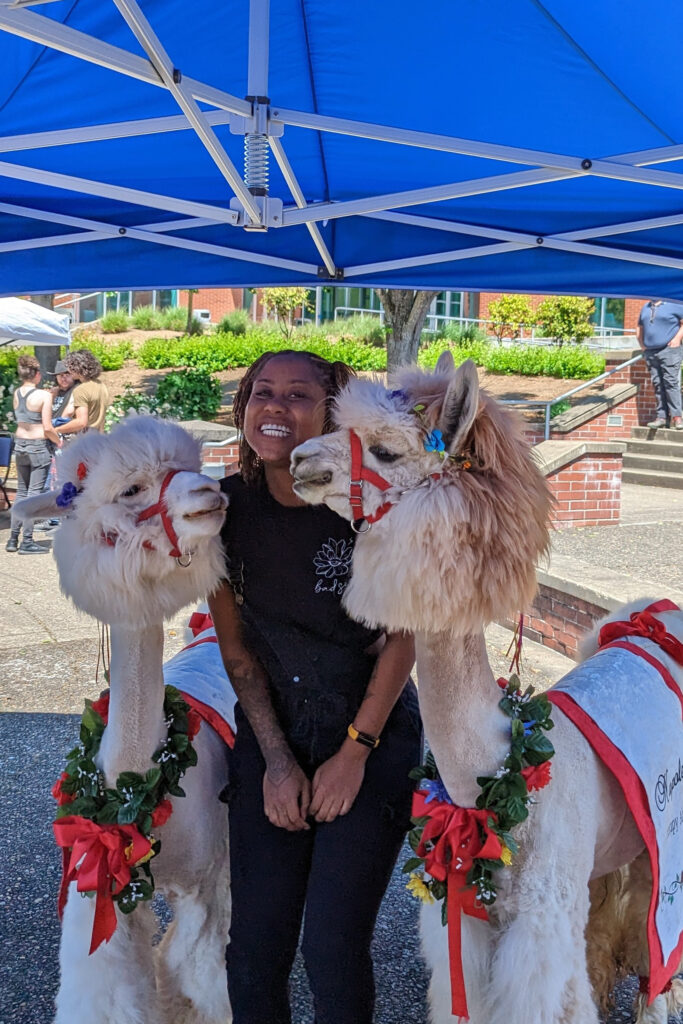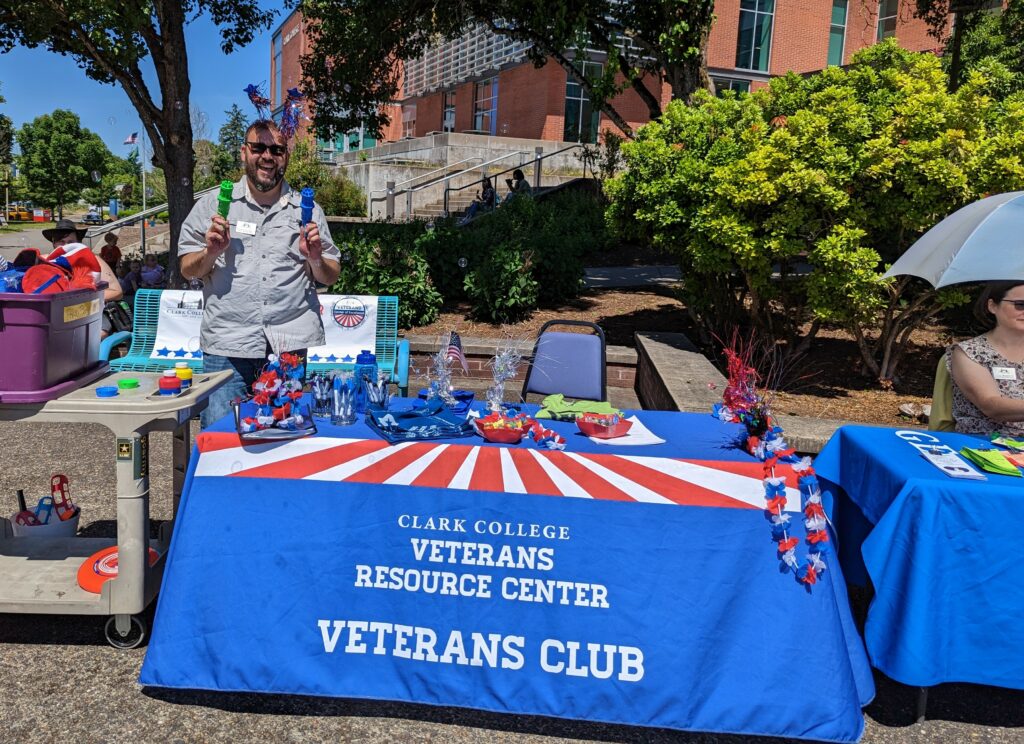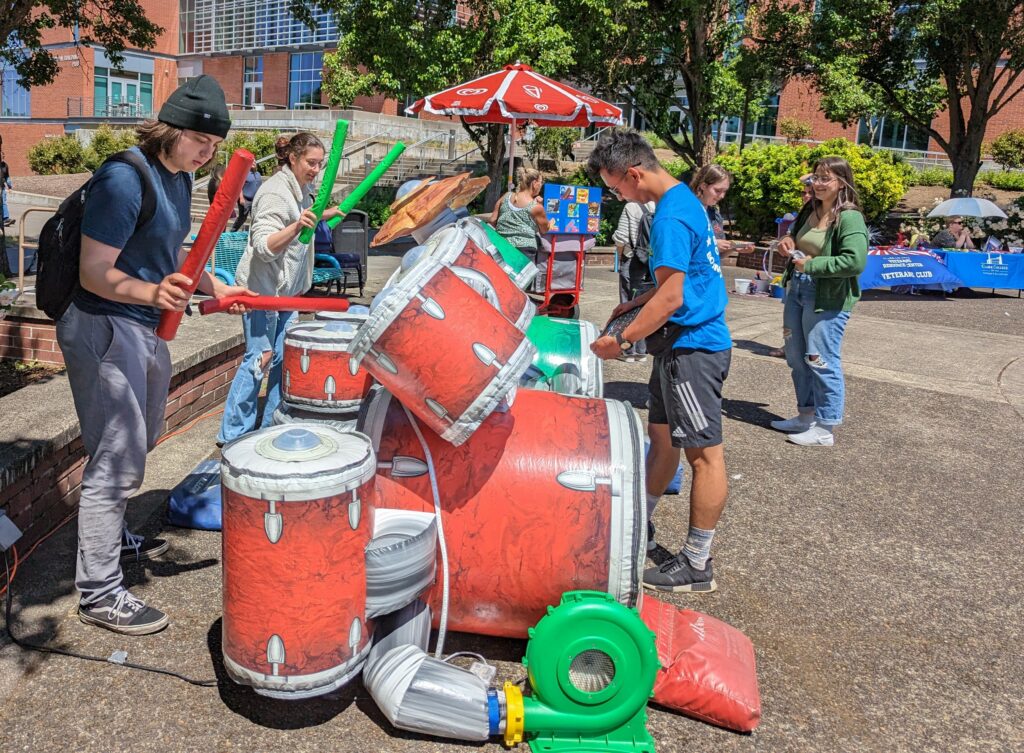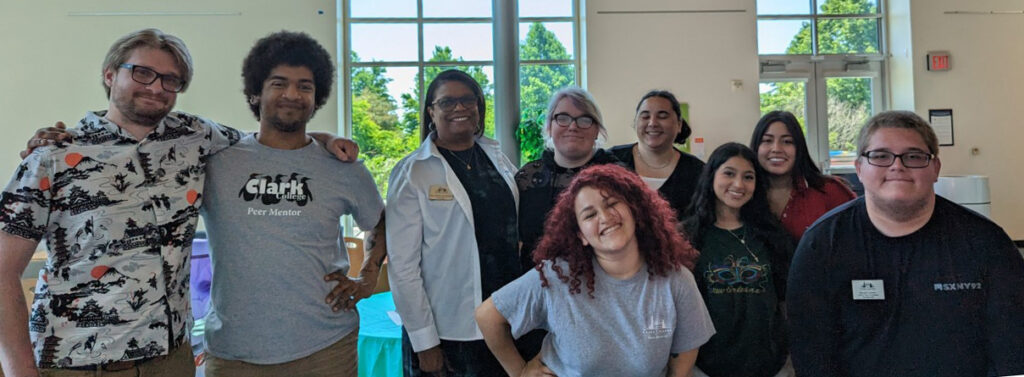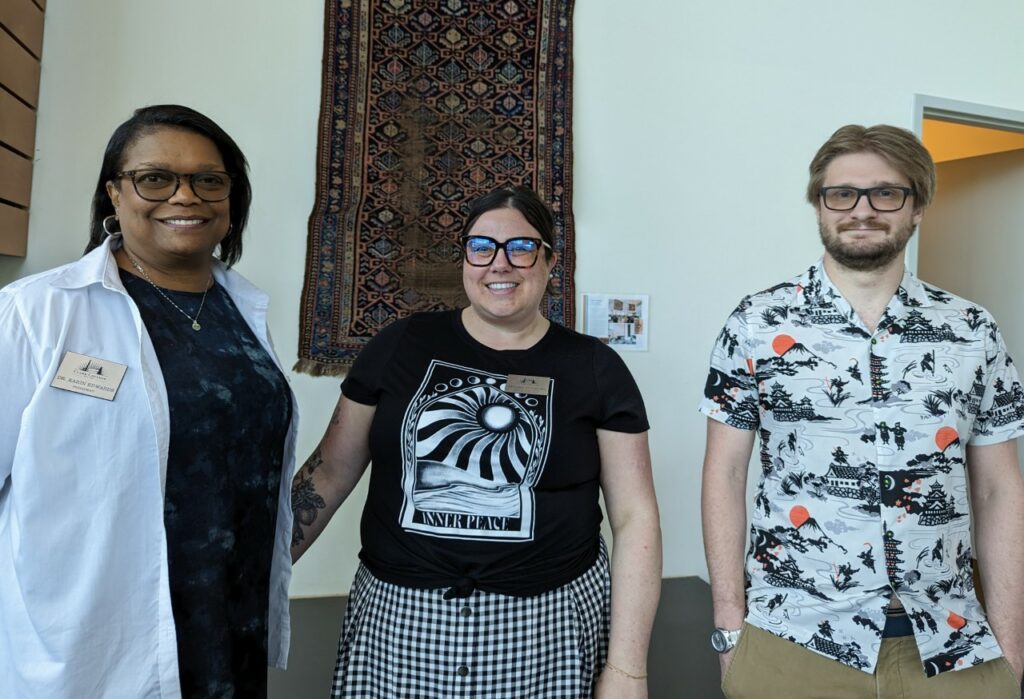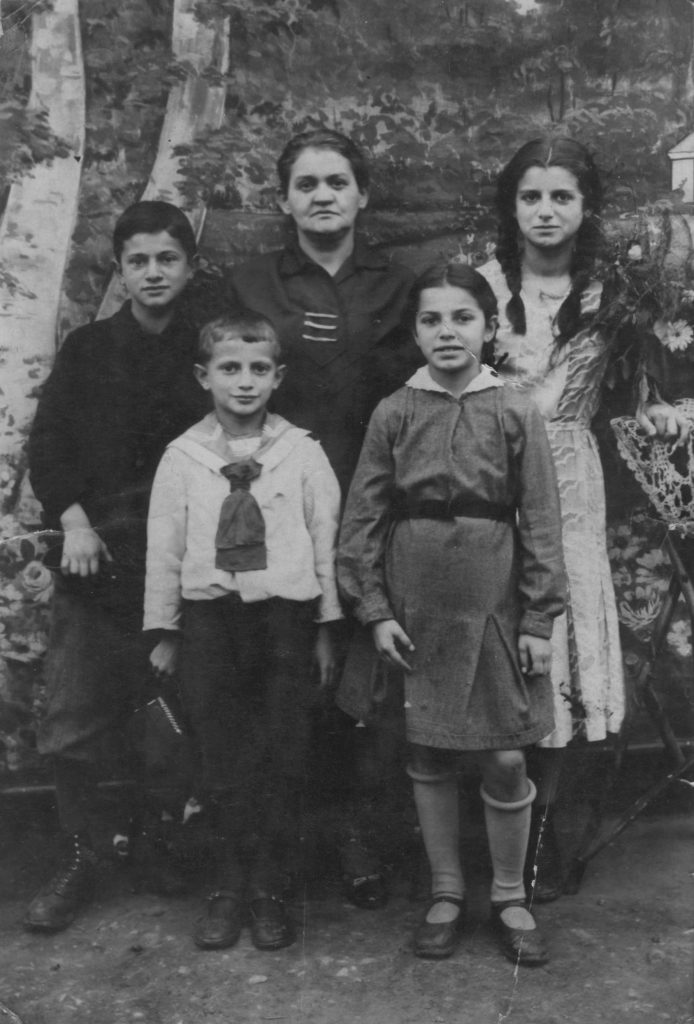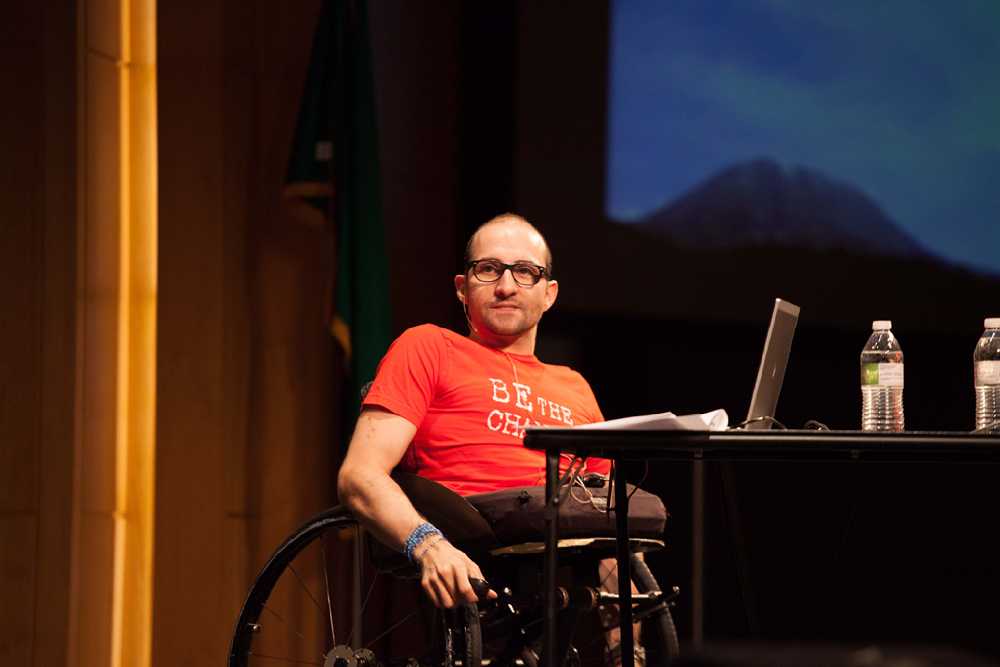Winter 2025 Involvement Fair
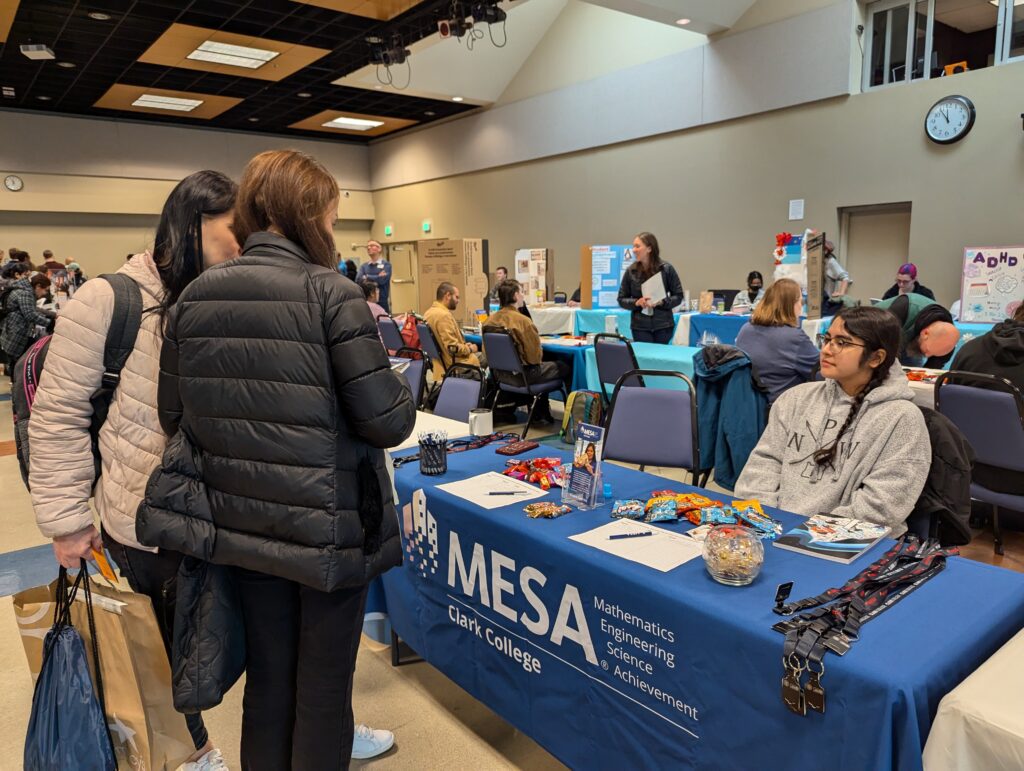
Gaiser Hall’s Student Center bustled with activity as hundreds of students, staff, and faculty gathered for Clark’s Winter Involvement Fair in the Gaiser Hall Student Center on January 15. The Student Involvement Fair, which is held at the beginning of every quarter, is an excellent way for students—particularly new students—to learn more about these programs, clubs, services, and opportunities.
Student Kasandra Wickstrom, a Phi Theta Kappa Honor Society member who is pursuing an environmental science degree at Clark, was one of the hundreds of students making connections with clubs, programs, and departments during the event.
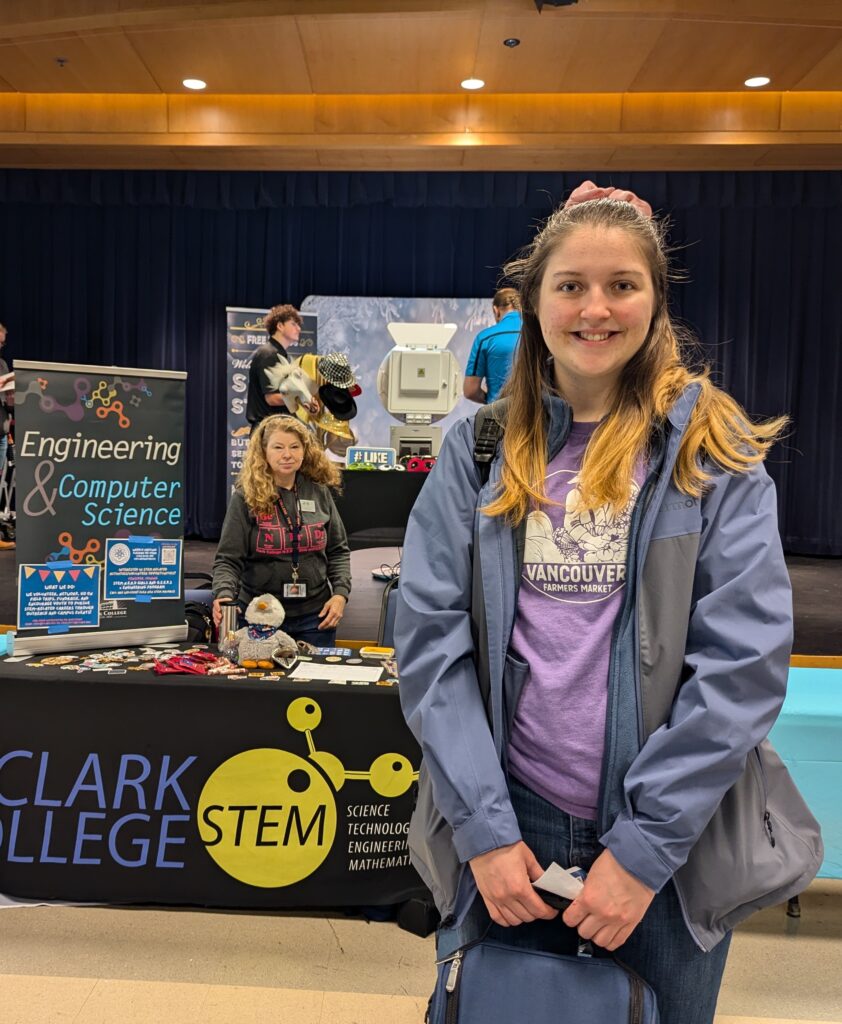
She said, “This brightens the experience here at Clark. It’s not just classes and tutoring. It’s making connections with others. It really shows the college cares.”
At the event, she and other students had the opportunity to connect with student-led clubs and initiatives, such as the STEM Nerd Girls club, focused on empowering women in science and math programs. Students also connected with peers with shared interests—from learning about other languages and cultures to getting their writing and artwork shared in student publications (The Swift, The Iceberg, and The Phoenix).
Clark College took the opportunity to inform students about wrap-around services. The library, tutoring, the Counseling and Health Center, and other student-facing offices hosted tables.
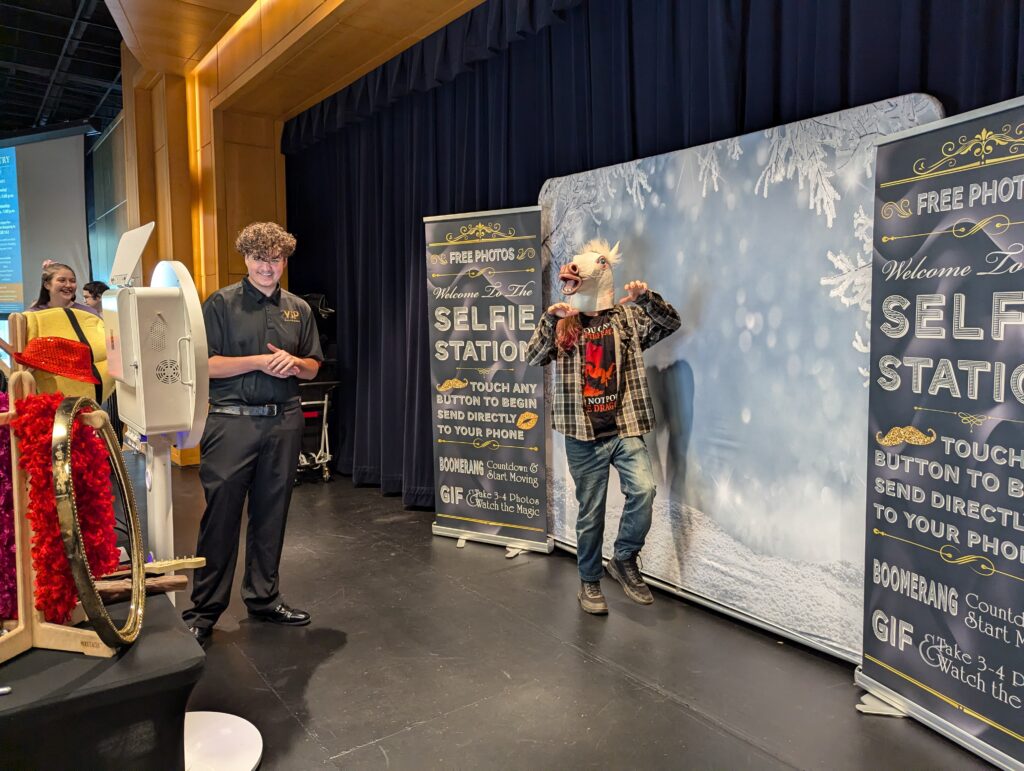
Not just tables, the fair also had popular attractions like a photo booth, a selection of donuts at the ASCC table, and free drinks from Pacific Perks Coffee.
Participating clubs, programs, departments, and more included (in alpha order):
- Activities Programming Board
- ADHD Club
- ASCC (Associated Students of Clark College) Student Government
- Campus Security & Safety
- Clark College Libraries
- Counseling and Health Center
- Columbia Writers Series
- CRU Club
- Decker Theatre
- STEM Nerd Girls & Engineering Program
- Environmental Club
- Get There Southwest Washington
- Japanese Program
- Korean Culture Club
- Latine Student Union
- League of Women Voters
- MESA (Mathematics, Engineering & Science Achievement)
- Office of Diversity, Equity and Inclusion
- Outdoors Club (coming soon!)
- Period, the Menstrual Movement (new at Clark!)
- Phi Theta Kappa Honor Society
- Philosophy Club
- Spanish Club
- Student Employment
- The Iceberg
- The Phoenix
- The Swift
- Tutoring
See here for a complete list of Clark College ASCC’s student programs and clubs.
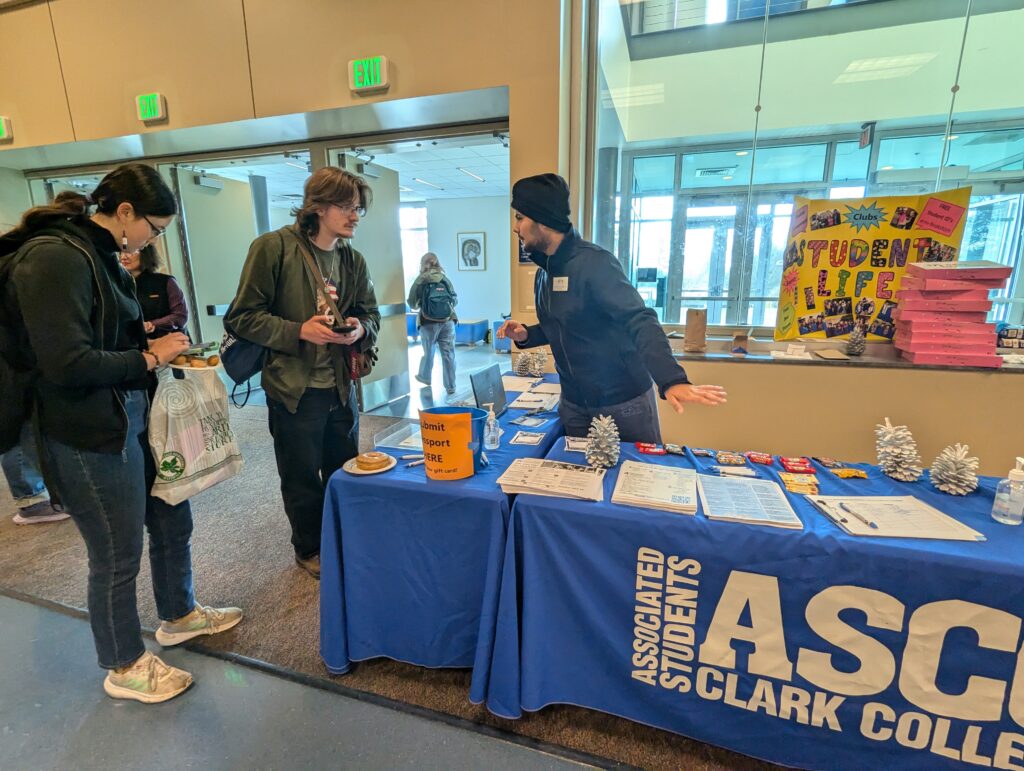
Photos: Clark College/Susan Parrish

